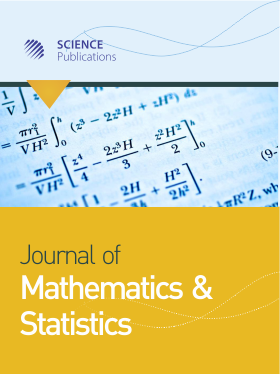Investigation of Socially Responsible Investment Markets (SRI) Using Dynamic Conditional Correlation (DCC) Method: Implications for Diversification
Abstract
Problem statement: Over the last ten years there has been a phenomenal growth in the amount of funds placed in SRI globally estimated to be around US$6.5 trillion while around US$55 billion in the Australian market. Accurate knowledge of correlation of the Australian SRI market with other SRI markets overseas is crucially important for Australian (SRI) investors for international portfolio diversification since portfolio diversification theory posits that the lower (higher) the correlation between markets, the higher (lower) the gains to be made. The study examines the relationship of the Australian SRI market with fourteen other markets-Canada, Denmark, France, Germany, Hong Kong, Ireland, Japan, Netherlands, Norway, South Africa, Sweden, Switzerland, United Kingdom and the United States. Approach: The relationships of the Australian Socially Responsible Investment (SRI) market with other SRI markets worldwide during the period 1994-2009 are examined based on the dynamic conditional correlation multivariate GARCH model (DCC-MVGarch). In the DCC method, the multivariate conditional variance estimation is simplified by estimating univariate GARCH models for each market. Using the transformed residuals resulting from the first stage, the authors can estimate a conditional correlation estimator. The standard errors for the first stage parameters remain while the standard errors for the correlation parameters are modified. Results: Our results showed that the Australian market experienced a surge in correlation with all other markets during the global financial crisis. During the period of study, the correlation of Australia with Canada, Denmark, Norway and the United Kingdom increased over time while its correlation with other countries remained stationary. This implies that the Australian SRI market is becoming more integrated with those of Canada, Denmark, Norway and the United Kingdom. Therefore, these overseas markets provide less portfolio diversification benefits to Australian SRI investors while the other markets still offer some opportunities. Conclusion/Recommendations: This study examined the relationship of the Australian Socially Responsible Investment (SRI) market with other SRI markets worldwide during the period 1994-2009 based on dynamic conditional correlation multivariate GARCH model that provides accurate correlations over time that can be incorporated into portfolio models. Australian SRI market was analyzed with fourteen other markets around the world such as Canada, Denmark, France, Germany, Hong Kong, Ireland, Japan, Netherlands, Norway, South Africa, Sweden, Switzerland, United Kingdom and the United States. The results showed that the Australian market experienced a spike in correlation with the other markets during periods of market distress; for example, during the recent global financial crisis. In spite of the fluctuations in the correlations of Australian with the other markets the correlations generally remain below 1. Australia’s correlation with Denmark, Norway and Japan increased while with others our market was more or less stationary except from 2007 onwards-global financial crisis. Clearly, it still pays for Australian investors to diversify internationally since the correlations are still less than 1. However, it pays less to diversify to such markets as Japan, Norway and Denmark while diversification benefits can be obtained from the other markets. Importantly, our results suggested that diversification to other SRI markets is less effective during periods of market distress. A number of other DCC models exist and it is possible to explore more of these that incorporate other influencing variables for more accurate portfolio analysis.
DOI: https://doi.org/10.3844/jmssp.2010.385.394

- 13,987 Views
- 6,389 Downloads
- 36 Citations
Download
Keywords
- Socially responsible investment
- integration
- multivariate
- GARCH
- Dynamic Conditional Correlation (DCC)
- time series
